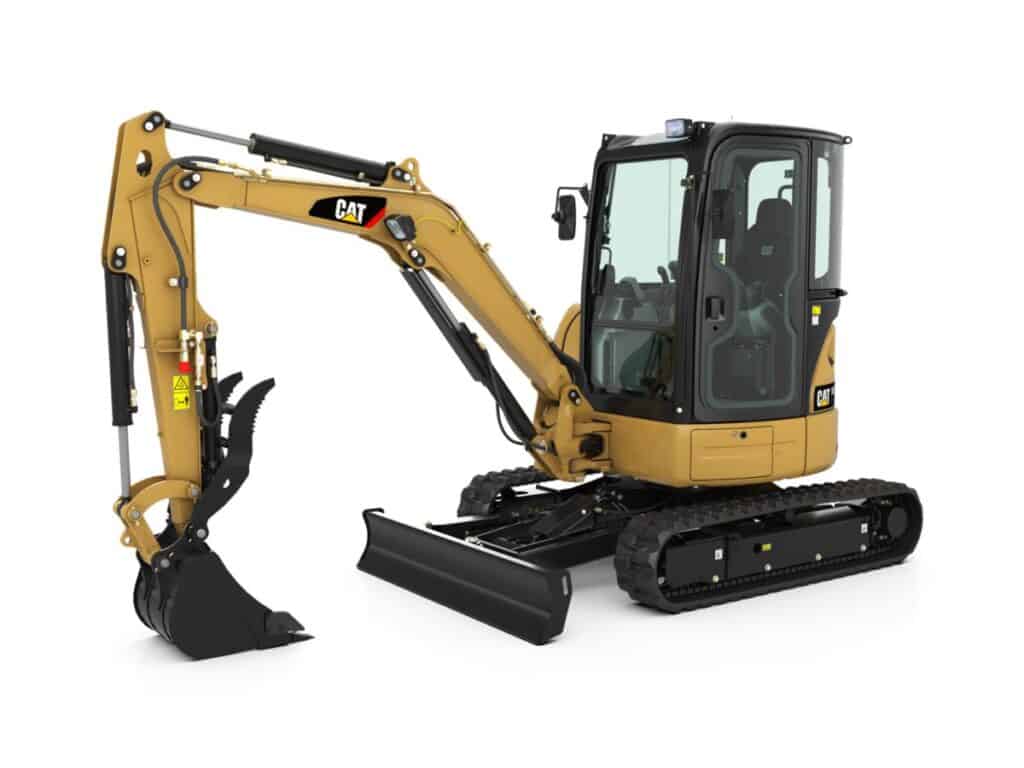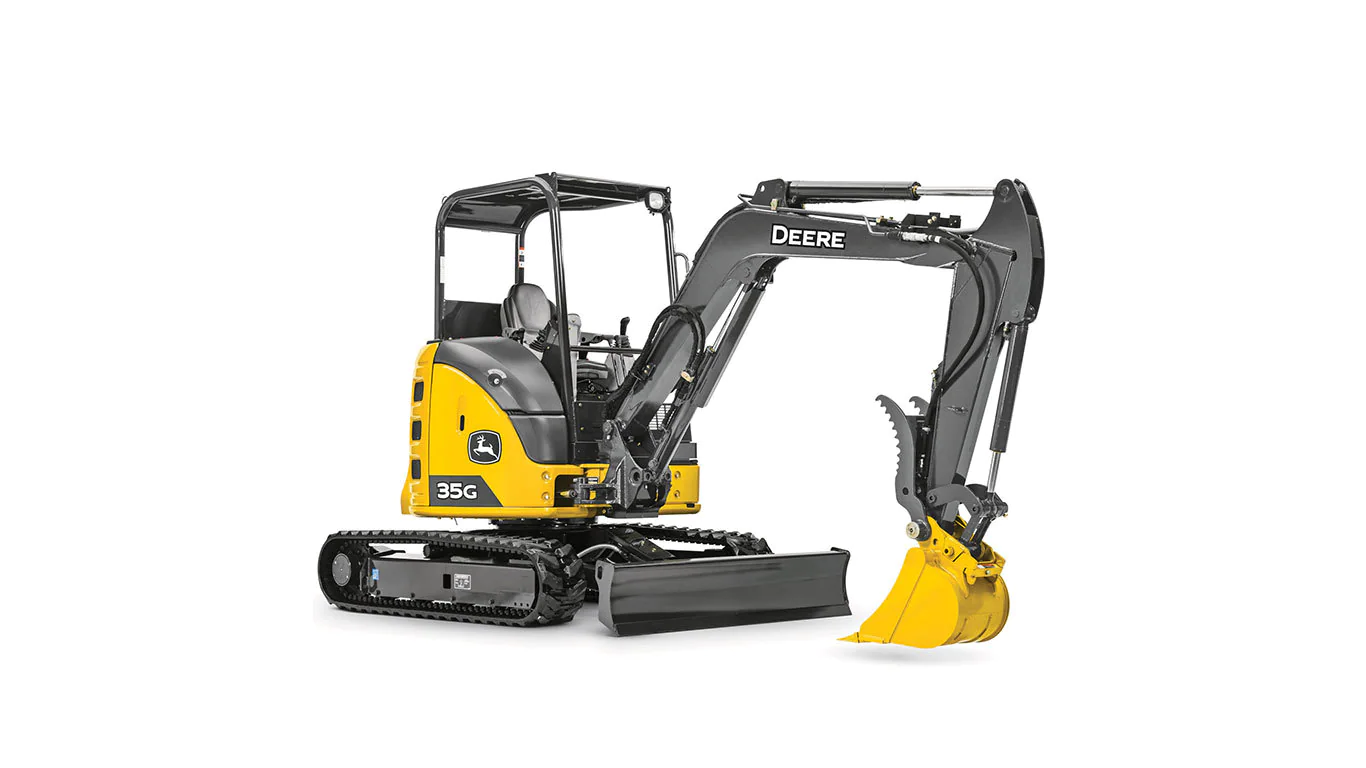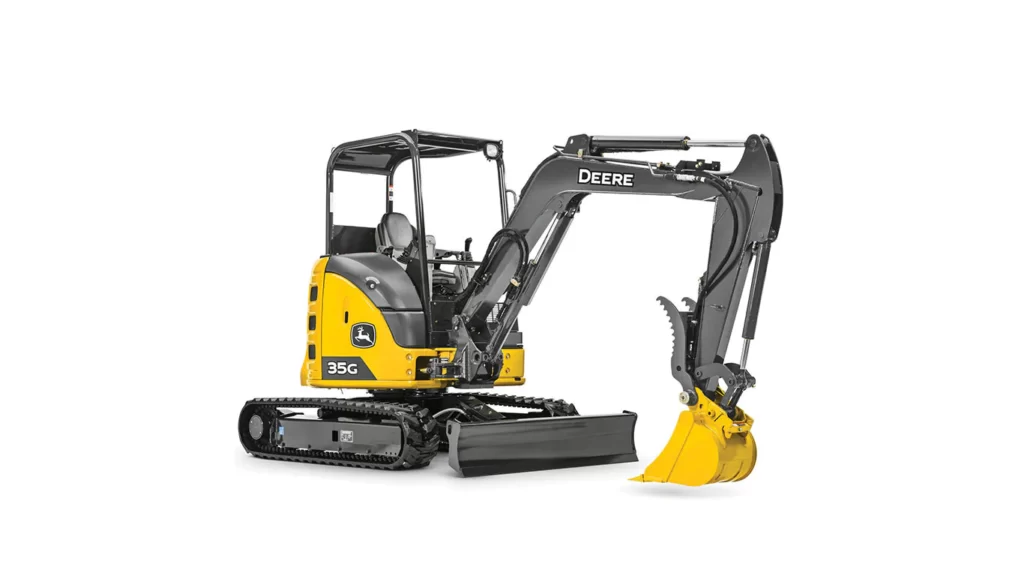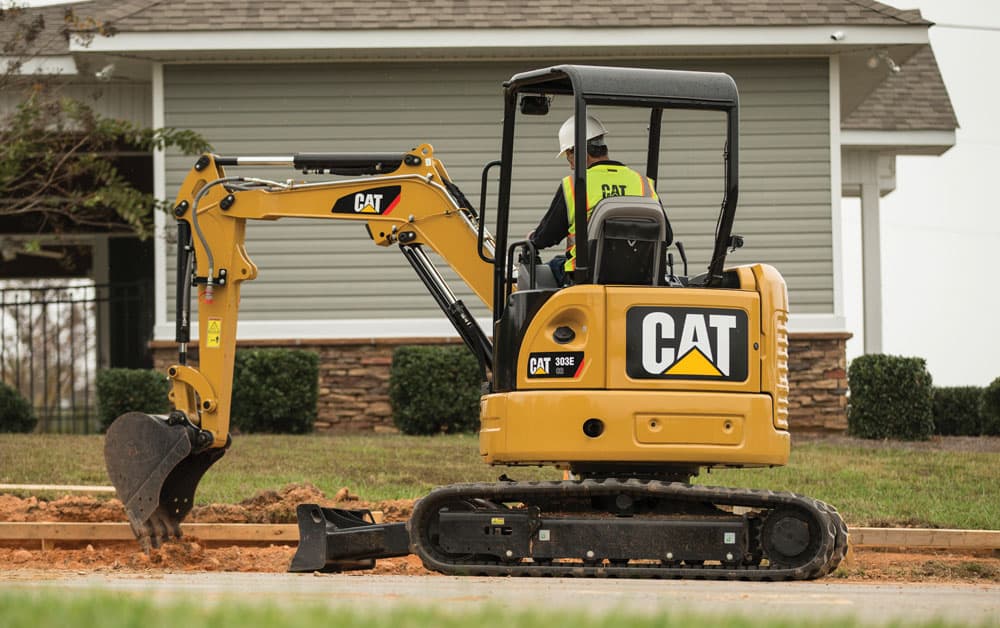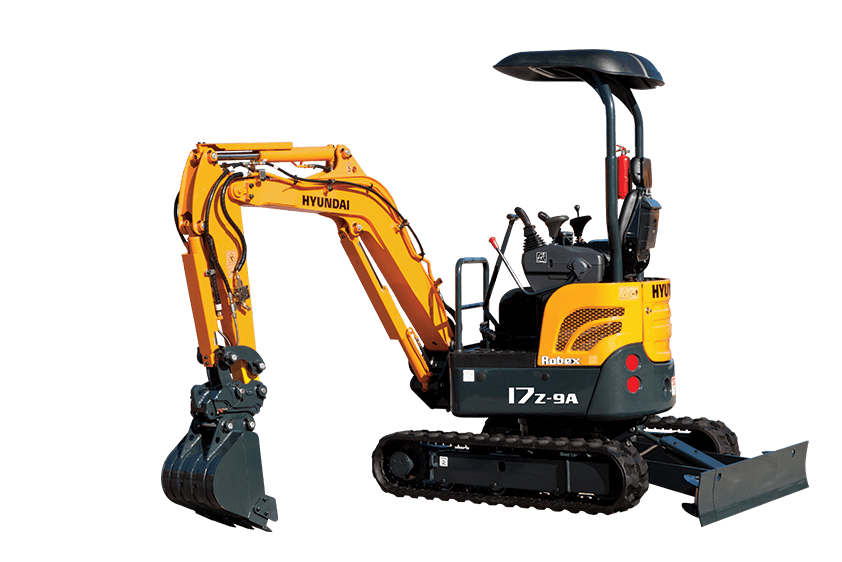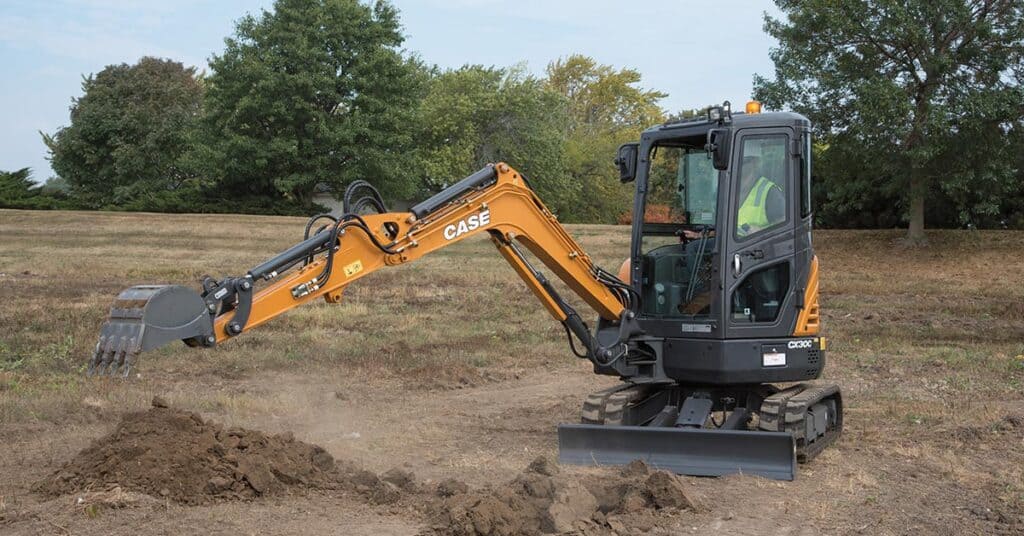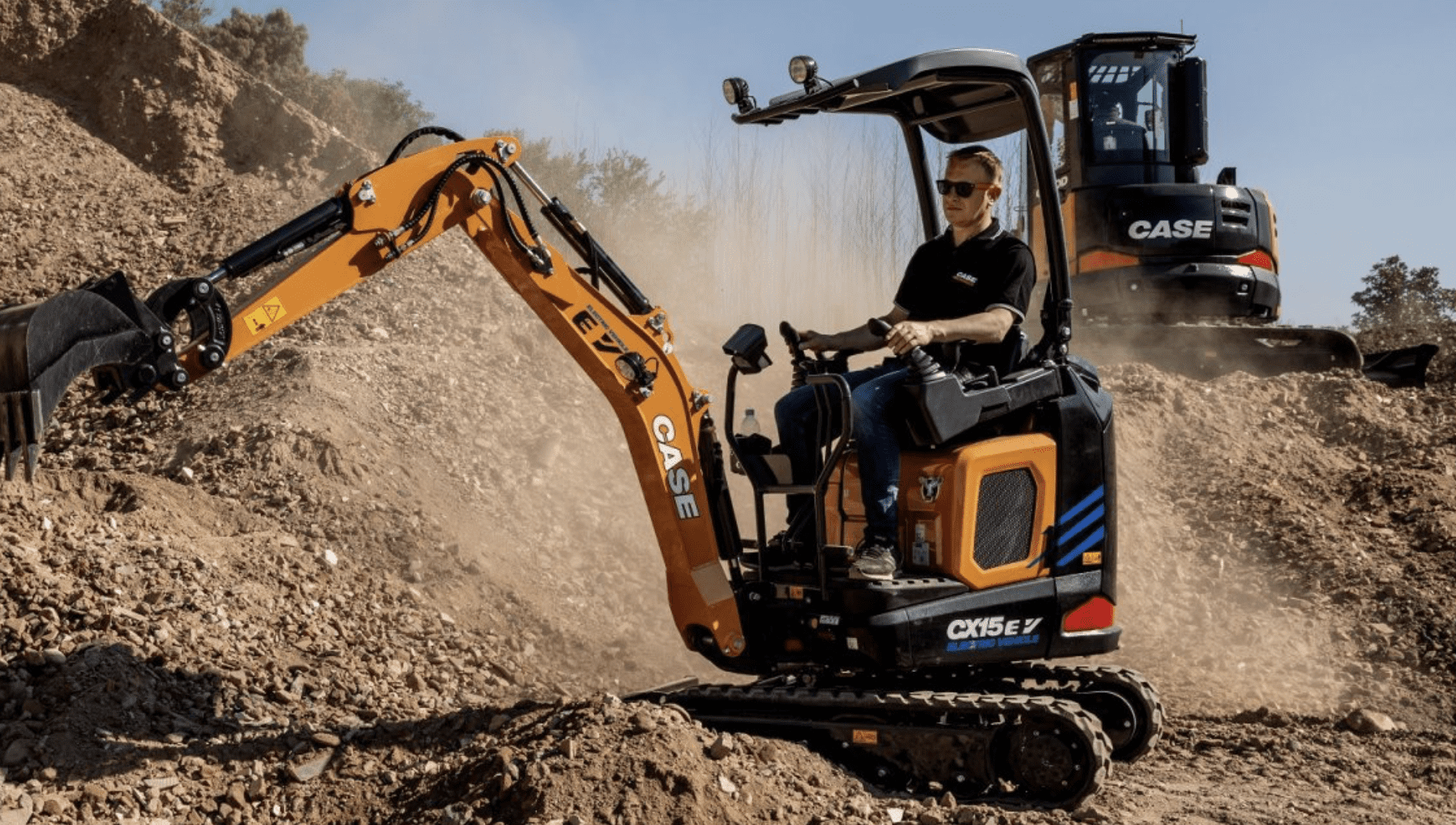Introduction:
A compact or mini excavator is a tracked or wheeled vehicle with a slew of uses in construction and various other projects. It can weigh up to 20,000 pounds, which is the cutoff point for a machine that you can consider. Some other definitions have a cutoff point for a mini excavator at 10,000 pounds, though. Compact or mini excavators are popular machines because of their versatility, with many uses for different projects including construction. Renting a compact excavator is a good idea because buying equipment is more expensive than renting it. Furthermore, not every mini excavator is suitable for every job. You can rent machines of various sizes and weights according to the tasks you are looking to complete. Find out the top 10 common applications of a compact excavator.
Applications of compact mini excavators:
One of the major benefits of mini excavators is that you can use them for a slew of different tasks. The sheer number of possible attachments and the light frame are what make these compact excavators such versatile machines. Here are some of the applications of mini excavators.
Sewerage line repair:
To do basic sewer line repair jobs, a mini excavator often makes for a better option as compared to a full-size machine such as a trencher. The reason why you should choose a mini excavator for sewer line repair is that a mini excavator can do the same job at a relatively low price than larger machines. The only thing you need to asses is the required digging depth for the sewer line to make sure it’s within the reach of a mini excavator. Once you gauge that you can use a mini excavator, it doesn’t make sense not to choose this tool for the job. If the maximum depth is not too extreme you can use a mini excavator for basic sewer line repairs. Do ensure you check the depths involved in advance so you know that you don’t need a full-size backhoe instead, and as always with this kind of project, map out utility lines and other obstacles in advance.
Hot tubs and pool installations:
In America and some other countries, people enjoy having a pool or a large hot tub installed outside their homes. You can have an idea about this from the fact that there are 10.4 million residential swimming pools in the United States. Since many states make homeowners get special building permits for pools, they often look for contractors to do the job. The compact nature of mini excavators makes them perfect for navigating a backyard that might not be fit and easy to access for a large digger.
Installing Water Features:
DIY water feature projects are safer and easier with a mini excavator. You can use this equipment to dig a pond or trenches for buried electrical lines running to fountains, waterfalls, and other water features. After you use the excavator to dig and level the area and create trenches to a depth of about 20 inches, you can proceed to install your rubber liner, landscaping fabric, and the feature itself.
Snow plowing:
City workers often need to clear roads that are covered with snow during the winter season of the year. Compact excavators can clear snow effortlessly using a special blade attachment. The compact size and low weight help these machines to get around snow-covered roads quicker. Mini excavator provides a clear and safe road after snow plowing.
Small structure demolition:
Many site jobs call for the demolition of small structures such as sheds. The easiest and most convenient way to do this effortlessly is by using a mini excavator. Compact excavators are most suited for this purpose because they can get around and move in small areas efficiently and fit into tight spaces like gates. If not a mini excavator then you might need to demolish this structure with hand-powered tools and it will take a lot more time.
Digging holes:
Some projects demand digging holes in awkward areas of the site. Construction teams often resort to using slow methods for excavation in these areas such as old-fashioned shoveling or hand-powered tools. A mini excavator’s ability to move into difficult areas of sites makes it the ideal machine for digging holes in particularly tough-to-reach spots. Using mini excavators and smaller sites to dig holes can improve the speed of the project which can be used to finish other important tasks of the project.
Establishing irrigation systems:
Most of the irrigation systems will require a number of trenches and other digging which is just the right job for a mini excavator. One can also use the mini excavator to work on other large-scale watering systems as well.
Patio installation:
If you’re planning a new patio, deck, or garden path in the near future then a compact excavator will do this job for you seamlessly and in very less time. You can also use it to dig and level almost any size area and you can also use it to haul your patio materials and distribute them.
Landscaping:
A micro excavator can also be used for planting trees and shrubs and for making irrigation ditches. These can also move around without leaving heavy marks or damaging the soil or plants.
Drilling:
Drilling is something that is closely associated with the micro excavator. Micro excavators are designed with a wide range of attachments specialized for drilling. Such as an auger that is equipped with teeth for drilling. So these can drill deep easily into concrete or soil. Tree augers have a small diameter on the bottom which is mounted to a larger diameter on top. So it can produce holes for planting trees. Rock bits are the toughest type of auger which is custom-made for digging in solid rocks and concrete.
Earthmoving:
Most people know that compact excavators are useful in earthmoving. Their trademark bucket attachments have teeth-like edges which enable the machine to dig and scoop earth. The earth-moving applications of mini excavators include:
Trench digging:
There are multiple uses for trenches in construction, utilities, and many other industries. Operators dig trenches with excavators to set foundations, install wires and pipes or create an area to plant seeds. Compact excavators can dig trenches which would take way more time and effort if done with manual equipment.
Landscape grading:
During the landscape grading process an excavator operator levels or sculpts the ground to prepare an area for a project. In construction, grading creates a level ground for a building or another piece of architecture. Grading in the landscape can involve controlling water flow from an area or creating a space for plants, paths, and other elements.
Material handling:
When an operator attaches a clamp attachment to an excavator, it becomes a powerful tool in material handling. The mini excavator picks up materials that would not fit in a bucket attachment. Few mini excavators have elevated cabs and heavy counterweights for better visibility and stability during material handling.
Underground excavation:
Underground excavation is also known as tunneling. The process of underground excavation involves creating underground passageways through digging. Operators can use a combination of bucket and auger attachments to get the best results. Augers bore deep into the ground using hydraulic circuits. Compact models of excavators tend to suit more to these operations more due to the limited space underground.
Amphibious and underwater operations:
Some types of excavators can operate in water. Features such as long attachment arms and roller chains make it easier to navigate an excavator in these environments.
Forestry-related operations:
In forestry, operators use excavators to create access routes, move branches, cut, and shear. Excavator attachments include shears, mulchers, and many other options for managing trees and greenery.
Debris removal:
Attachments such as buckets and clamps enable excavators to pick up debris in removal applications. Different excavator types and sizes allow you to choose the right combination of power and maneuverability for debris removal jobs.
Advantages of compact excavators:
Easy-to-use excavators:
As the name indicates compact excavators come up with tight bodies, you can fit different types of attachments and a variety of bucket sizes. So, you can make it suitable for practically many different jobs without hassles. The operation of a mini excavator, particularly the ones made by well-established brands like Cat is very simple to use as well. Most often you don’t need someone to hire anyone to handle the equipment. Anyone can learn the operation efficiently.
Suitable for tight spaces:
One of the major issues of large-sized excavators is that they can only work wide open spaces and can’t reach tight spaces. This makes it very difficult to achieve precision in a tight-spaced project. A compact excavator can work and move around easily in tight spaces.
Easy to transport:
Transporting machines often turns out to be a challenge. If you are hiring the equipment and looking to transport it from the dealer to your work site, or you are looking to transport the machine from one site to another, you would need to plan for a lot of different things if it’s a large excavator. If it is a small one, then the hassles are reduced by a significant degree. They can easily fit in extended pickup beds or even into the trailer of a pickup truck.
Unlimited functions:
Although the size of compact excavators is smaller, this doesn’t mean that they have limited functions. Most of the modern compact excavators have almost the same functions which would find and expect in their larger counterparts. They can still swing 360o just like large excavators. It means that there is absolutely no need to re-position the trucks. You can simply swing to place the load into the dump trucks.
Do less damage:
Because compact excavators are lightweight so you can avoid grinding or scraping the surface on which you are working. In smaller machines, you can have rubber tracks that help load the machine for transport, thereby reducing the chance of slips. If you’re working in an environment like a building or similar kind of enclosed construction then you don’t need to tear down walls or enlarge the doorway to accommodate the machine as they are so small.
Produces less noise:
Most such compact excavators are designed to produce less noise. When they cross hard surfaces and cement they produce much less noise as compared to large excavators. It makes them perfect for working on residential projects.
Save you money:
Mini or compact excavators can save you a good deal of money. For starters, they are less expensive as compared to full-sized excavators. So, if you’re getting a new or a used excavator for sale you can buy it for a lesser amount. For example, you don’t need to spend money to get special permits to haul the machine through the highway. And you don’t need to hire a specialized driver with a commercial driving license because it’s necessary for such small-size excavators. On top of that, you can save a lot of fuel and maintenance costs. We can have an idea from the above discussion that how important compact excavators are.
Performance:
Compact excavators equipped with modern technologies offer reliable performance and have the power needed to handle the toughest jobs. They have a weight between 2,000 pounds and 8,000 pounds and offer superior handling and strength. These machines are built with exceptional engineering so you can be confident that they’ll last a long time.
Onsite versatility:
With multiple attachments available, a mini excavator has the potential to carry out a variety of tasks on-site. Not only does this reduce the need for multiple pieces of machinery but, with the ability to easily and quickly change attachments, you can seamlessly switch from one task to another without needing to worry about impacting productivity.
Multiple choices:
Mini excavators come in a range of operating sizes, as well as wheeled and tracked varieties, making them suitable for all manner of projects. Ranging from 1 tonne to 8 tonnes, you can be assured that when hiring a mini excavator, you won’t be left disappointed with either its power or performance.
Conclusion
If you want to know more information about compact excavators, please feel free to contact us.

